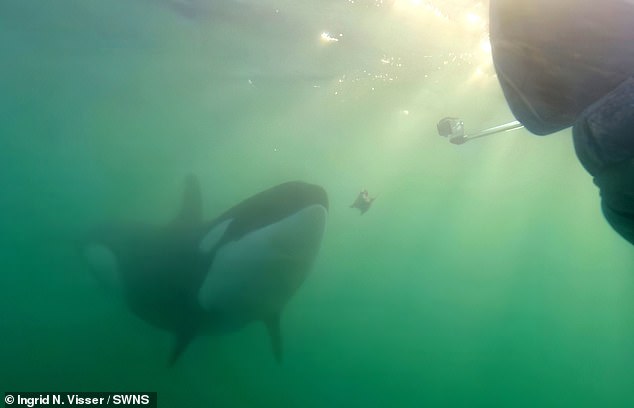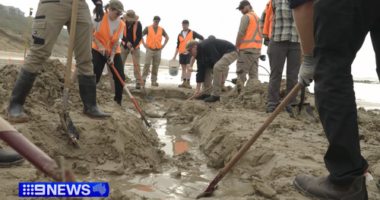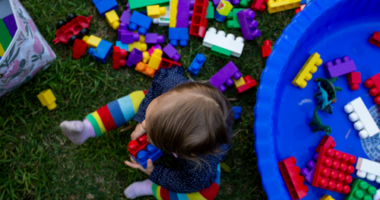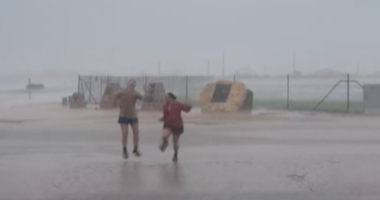Share this @internewscast.com
Scientists have been left baffled after orcas were spotted giving gifts to humans in random acts of ‘kindness’.
From the frozen fjords of Norway to the seas near New Zealand, wild orcas have been observed approaching humans in boats or even on land, presenting items clutched in their jaws.
And the ‘gifts’ have ranged from fish, birds, stingrays, chunks of meat, and in one case, even a turtle.
The behaviour, recorded in 34 separate incidents across six different orca populations, appears to be deliberate and surprisingly consistent.
After presenting their ‘gifts,’ these orcas often linger nearby, seemingly anticipating a reaction from the humans—similar to a pet cat bringing a captured mouse to its owner and waiting for approval.
In numerous instances, puzzled receivers inspected the peculiar offerings, then carefully returned them to the water—only for the whale to fetch them and remarkably present them once more.
The findings, published in the Journal of Comparative Psychology, have left researchers scratching their heads.
‘We do not know the end goal of the cases reported here or even if there were any, but captive killer whales have been known to use dead prey to attract other species and then kill, but not always eat them,’ the team, who were led by Jared Towers of the California Killer Whale Project, wrote in their study.

Wild orcas have been seen approaching humans who have been in boats and even standing on shore with an offering between their jaws

The ‘gifts’ have ranged from fish, birds, stingrays, chunks of meat, and in one case, even a turtle

In several cases, bemused recipients took the unusual tokens, gave them a once-over, and gently tossed them back – only for the whale to retrieve and extraordinarily offer them again
While the idea of animals helping humans is a popular trope in ancient stories – think of Romulus and Remus being raised by a she-wolf, or jungle tales of children rescued by monkeys – modern scientific evidence has been scarce.
One leading theory is that this behaviour reflects what scientists call ‘interspecific generalised altruism’ – essentially, kindness without strings attached.
The orcas may be extending an invitation of friendship, offering up a piece of their catch without expecting anything in return.
But researchers also aren’t ruling out more calculating motives.
In captivity, orcas have been observed using dead prey to lure birds closer only to eventually strike.
However, there’s been no hint of aggression towards humans. In fact, wild orcas have never been known to kill a person.
Still, caution is urged regarding the five-tonne apex predators with a brain twice the size of ours. Their ‘capacity to display complex and varied behaviours’ remains poorly understood, the researchers added.
The most plausible explanation, according to the team, may be that the gift-giving is part of the orcas’ natural curiosity, and a way to study humans.
‘This behaviour may represent some of the first accounts of any wild predator intentionally using prey and other items to directly explore human behaviour,’ Towers and his colleagues wrote.
Intriguingly, in all but one of the 34 cases, the whales waited for a response.
Offering items to humans, researchers concluded, ‘could simultaneously include opportunities for killer whales to practice learned cultural behaviour, explore, or play and in so doing learn about, manipulate, or develop relationships with us’.
It comes after a pair of orcas were spotted snogging in the wild – and even using tongues.

Two orcas were seen engaging in ‘gentle, face-to-face oral contact’ and gently biting each other’s tongues in a practice known as tongue nibbling
Video showed the pair of French-kissing killer whales gently biting each other’s tongues for almost two minutes before parting and swimming away.
In a paper published in the journal Oceans, the researchers describe ‘repeated episodes of gentle, face-to-face oral contact’.
The strange behaviour was spotted by a group of nature tourists on a snorkelling trip in the Kvænangen fjords in Norway, about 68 miles (109 kilometres) northeast of Tromsø.
This behaviour, referred to as ‘tongue nibbling’ by scientists, has been seen before in captive whales but never amongst orcas in the wild.
Scientists still aren’t sure why orcas might engage in this kissing-like activity, but it could be a form of social bonding or play between these highly intelligent animals.












